Five Rackham students will be inducted into the Edward Alexander Bouchet Graduate Honor Society. Named for the first African-American doctoral recipient in the United States, the Bouchet Society recognizes outstanding scholarly achievement and promotes diversity and excellence in doctoral education and the professoriate.
The Bouchet Society is a network of preeminent scholars who exemplify academic and personal excellence, foster environments of support, and serve as examples of scholarship, leadership, character, service, and advocacy for students who have been traditionally underrepresented in the academy.
In the spirit of Bouchet’s commitment to these ideals, the 2020 Bouchet inductees representing the Rackham Graduate School’s society chapter have all demonstrated significant achievement in these five areas:
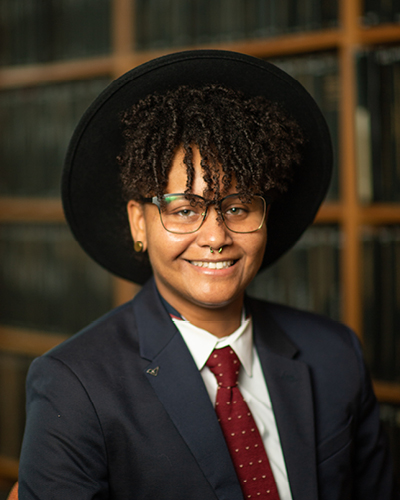
Tia Clinton
Tia Clinton is a Ph.D. candidate in sociology. Her research interests broadly span racial stratification in both K-12 and higher education focusing on issues of discipline, achievement, equity, access, quality, intervention, and evaluation. Her dissertation assesses whether or not restorative justice practices, an educational intervention intended to address the discipline gap and the school-to-prison pipeline, may have implications for the Black-white achievement gap. More explicitly, the research explores how the use of restorative justice practices, in the school setting, affects school bonding for Black students—a variable that moderates the relationship between discipline and achievement. Clinton has been recognized as a Robert Kahn Fellow and a Rackham Merit Fellow and was awarded a University of Michigan Scholar-Activist Award in 2019. Academically and professionally, she has championed issues centering around racial equity in education and social justice, working at organizations including the American Civil Liberties Union, the Institute of Higher Education Policy, and Prep for Prep. Her scholarship aims to contribute to an emerging body of work that elucidates the connections between the Black-white achievement gap and the discipline gap. She hopes to influence policymakers to move away from harmful zero-tolerance practices and embrace non-punitive approaches that increase the academic and socio-emotional well-being of Black students. Clinton earned her bachelor’s degree in sociology and American studies from Wesleyan University and her master’s degree in sociology from the University of Michigan.
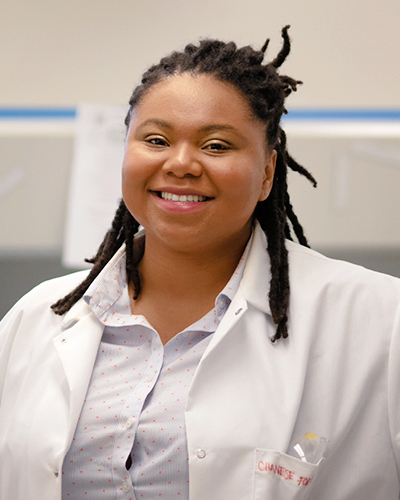
Chanese A. Forté
Chanese A. Forté is a candidate for a joint Ph.D. in environmental health science and scientific computing with a concentration in environmental toxicology and epidemiology. Her research focuses on pesticide exposure among farmworkers and cancer development in human cells. Forté has been recognized as a National Institute of Health Environmental Toxicology and Epidemiology Fellow, a Rackham Merit Fellow, and a National Institute of Occupational Safety and Health Education Research Center Fellow. She is an advocate and an educator and hopes to encourage a passion for big data analysis that is both empathetic and culturally competent. She co-founded the only queer organization at the U-M School of Public Health, acts as an admissions ambassador for Michigan Public Health, and is a mentor for both the Undergraduate Research Opportunity Program and the Michigan Research and Development Scholars. Ultimately, Forté aspires to be able to continue to move cancer research forward by focusing on underserved or health disparate groups’ chemical exposures.
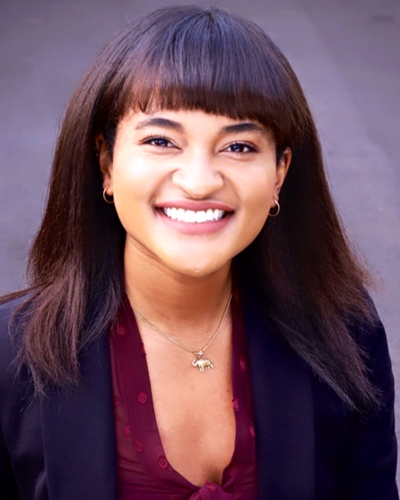
Nisha Rosita Hollingsworth
Nisha Rosita Hollingsworth is a Ph.D. candidate in macromolecular science and engineering. Her thesis work focuses on understanding the fundamental physics of charged polymers, called polyelectrolytes, which are used in a variety of applications from water treatment to electronics and drug delivery. She received her bachelor’s degree in chemistry from Columbia University, where she was a National Merit Scholar. She has been a proponent of youth mentorship and STEM education her entire career. Following her graduation from college, she was a high school math and science teacher in an at-risk school district near her hometown in Michigan. Currently, Hollingsworth is a research mentor to multiple undergraduate students through the U-M Undergraduate Research Opportunity Program. Through her department, she volunteers to teach local area youth about the field of polymer engineering. Outside of science, she loves music, and enjoys being on the board of directors of the Musical Mentors Collaborative, a 501(c)(3) nonprofit organization which aims to provide free music education to disadvantaged youth.
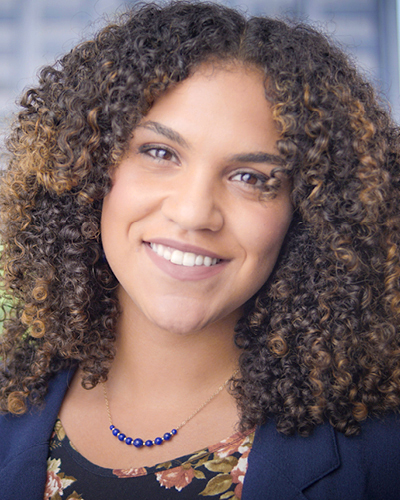
Michelle May-Curry
Michelle May-Curry is a Ph.D. candidate in American culture. Her research focuses on visual and literary representations of mixed-race Black-white families in the 20th and 21st centuries, charting how these representations change in relation to shifts in Black politics and aesthetics. She has been recognized as a Rackham Merit Fellow and a Humanities Without Walls Fellow, and received the Institute for Research on Women and Gender’s Community of Scholars Research Award. She received her Bachelor of Arts in English and political science from Williams College, where she was a recipient of the Creating Connections Consortium (C3) Mellon Fellowship to conduct research at UC Berkeley. During her time at U-M, May-Curry has chaired the African American Caucus and co-chaired the Black Humanities Collective, two graduate student groups catering to the professional and scholarly interests of Black studies scholars. She believes in sharing a love of visual culture and storytelling through her teaching and public scholarship. Most recently, as a Carr Center Independent Scholar, she collaborated with multimedia artist Carrie Mae Weems and other young artists and scholars to mount two art exhibitions in Detroit and in Cuba for the 2019 Havana Biennale. She has also been a volunteer with The Moth, a storytelling nonprofit organization bringing true stories to live audiences across the nation. Ultimately, she aspires to work at the intersection of arts organizations and academia, with a passion for improving lives through public scholarship and engagement.
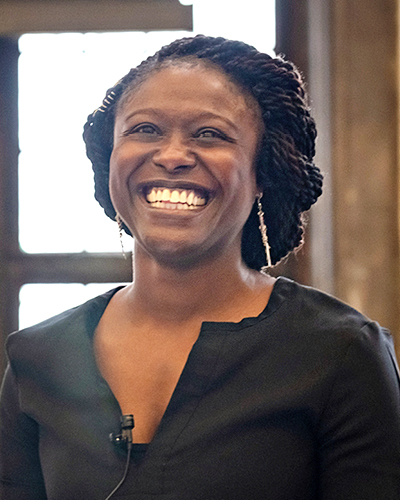
Ebony Perouse-Harvey
Ebony Perouse-Harvey is a Ph.D. candidate in teaching and teacher education. She also holds a master’s degree in special education: learning disabilities and a Juris Doctor. She is a New York University Steinhardt Faculty First-Look Scholar and a U-M School of Education Diversity, Equity, and Inclusion awardee. Her main research interest and teaching practice centers around the creation of professional development that supports both special and general educators in recognizing the impact of the intersectionalities of race, class, gender, and (dis)ability in their classrooms and special education practices during the referral, support, and transition phases of the special education process. In an article developed for education practitioners to support pre-service teacher advocacy practices, she co-authored Special Education Instruction: Pillars and Practical Applications for College Instructors (in press). Out of her work with the LIFE Simulations project, she contributed to the article Race and the Mona Lisa: Reflecting on Antiracist Teaching Practice, which shared with researchers and education practitioners pedagogies used to support pre-service teacher enactment of anti-racist teaching practices. She co-chaired the graduate research conference, entitled Embracing Tensions for Equity: Bridging Research, Policy, and Practice in Education, with the purpose of opening candid conversations around the potential of our research to positively and/or negatively impact the communities we intend to help, particularly marginalized communities. Additionally, she currently co-chairs a group called Women of Color and the Academy that brings together education scholars and practitioners to examine issues related to race, research, and representation.

